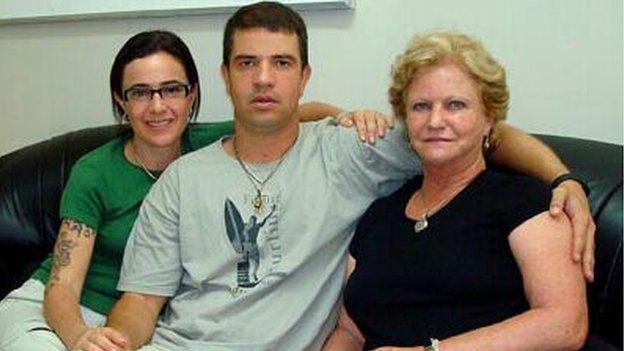Indonesia drugs prisoners have final moments with family
- Published
Myuran Sukumaran's mother: "Call off the execution, please don't kill my son"
A group of prisoners due to be executed for drugs offences in Indonesia have spent what are believed to be their final moments with their families.
Relatives of Australians Andrew Chan and Myuran Sukumaran were visibly distressed. Sukumaran's sister collapsed and had to be carried.
Chan, Sukumaran and seven others are expected to be executed by firing squad as early as Tuesday night local time.
A French national still has his appeal under review.
Indonesia has some of the world's toughest drug laws, but Jakarta has justified this due to the country's own drugs problem - 33 Indonesians die every day as a result of drugs, according to Indonesia's National Narcotics Agency.
Australian media reported that families of Chan and Sukumaran were given about five hours to say their goodbyes, and that the men had been denied their own choice of spiritual adviser in their final hours, instead being given Christian guides nominated by the authorities.
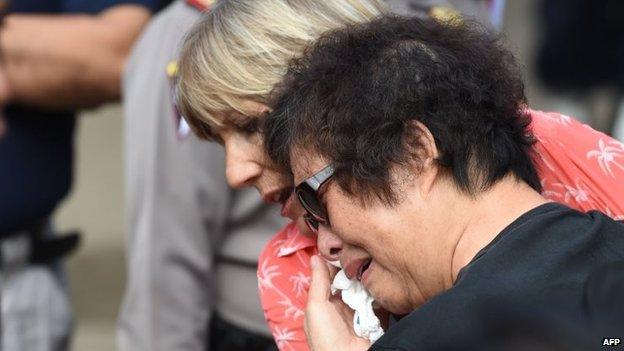
Andrew Chan's mother Helen (right) broke down in tears as she arrived on Nusakambangan island
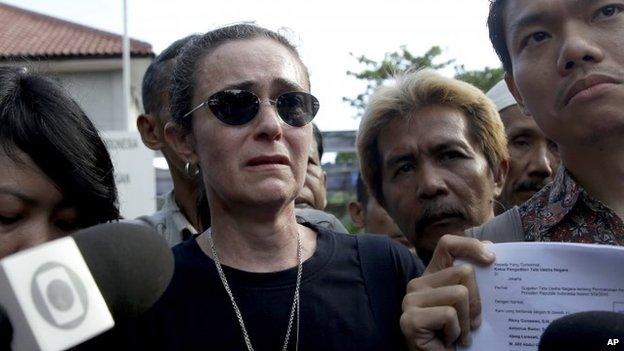
The cousin of Brazilian Rodrigo Gularte following her meeting with him
After the meeting, the brothers of the Australians made an appeal via the media for final clemency, with Michael Chan describing the goodbye as "torture".
"I saw today something that no other family should ever have to go through. To walk out of there and say goodbye for the last time, it is torture. No family should go through that."
Chintu Sukumaran said: "There were so many things to talk about. We did talk about the death penalty and he knows this is just a waste... I ask the president [of Indonesia] to please show mercy, please don't let my mum and my sister have to bury my brother."
The relatives of Philippines convict Mary Jane Veloso were each given a blessing by a Filipino priest as they arrived at the prison on Nusakambangan Island, AFP reported.
"The family was so silent. It's really very sad. We see a kind of deep pain," he told the agency.
The nine prisoners, who also include three Nigerians, a Brazilian and a Ghanaian, were formally notified on Saturday that they would be executed. Under Indonesian law, criminals must be given 72 hours notice, which means that they can be killed as early as Tuesday night local time (Tuesday afternoon GMT).
The BBC looks at the prison which has been called 'the Alcatraz of Indonesia', where condemned prisoners are executed by firing squad
Australian Foreign Minister Julie Bishop earlier urged Indonesia to delay the execution of its two nationals until a corruption investigation into their case was complete.
'No legal standing'
But Indonesia's attorney general later confirmed that the nine death row convicts would be executed as planned.
Attorney General HM Prasetyo told the BBC a judicial review "could not amend [a] previous court ruling" and that "foreigners do not have any legal standing for a judicial review on the Constitutional Court".
Claims that the Indonesian judges in the trial had asked for bribes for lighter sentences first surfaced earlier this year.
One of the judges involved in the case denied there had been political interference or negotiations about bribes.
"I can assure you there was none," the judge told Fairfax Media. "We protected ourselves from everybody. It was purely our decision."

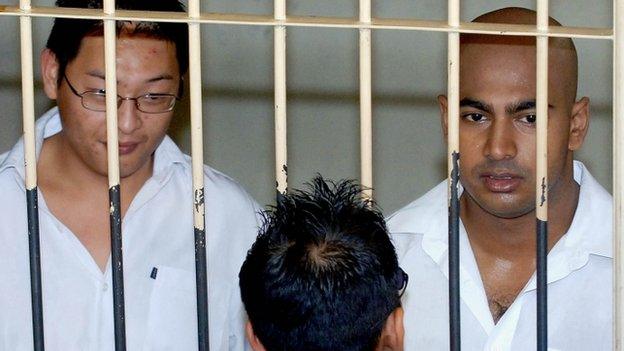
Andrew Chan (left) and Myuran Sukumaran were sentenced to death in 2006
Australians Myuran Sukumaran and Andrew Chan
Filipina Mary Jane Fiesta Veloso
Frenchman Serge Areski Atlaoui
Ghanaian Martin Anderson
Indonesian Zainal Abidin bin Mgs Mahmud Badarudin
Nigerians Raheem Agbaje Salami, Sylvester Obiekwe Nwolise, Okwudili Oyatanze
Brazilian Rodrigo Gularte

The head of Europe's 47-nation human rights organisation, the Council of Europe, also issued a statement on Tuesday calling on Indonesia to call off the execution.
"The death penalty is a terrible injustice which can never be put right," said Council of Europe Secretary General Thorbjorn Jagland.
Chan and Sukumaran, along with seven other Australians, were arrested in Bali in 2005 for trying to smuggle more than 18lb (8.2kg) of heroin from Indonesia to Australia.
The pair were later found to be the ringleaders of the group and sentenced to death. The other seven members of the "Bali Nine" are currently serving either life or 20 years in prison.
Indonesia has some of the toughest drug laws in the world and ended a four-year moratorium on executions in 2013.
- Published29 April 2015
- Published4 March 2015
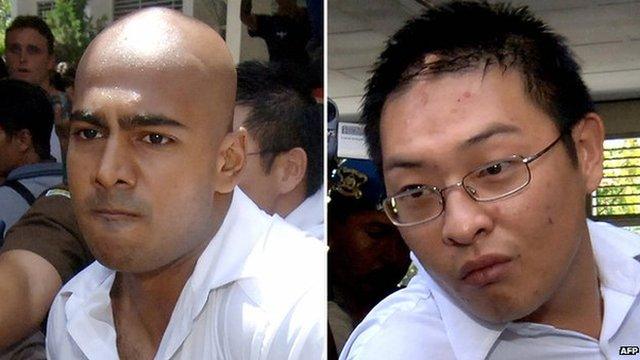
- Published5 March 2015
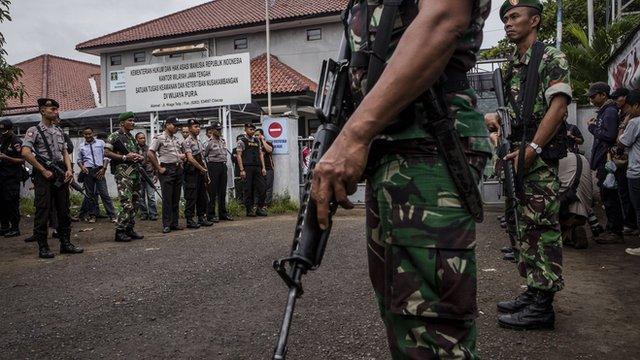
- Published8 February 2015
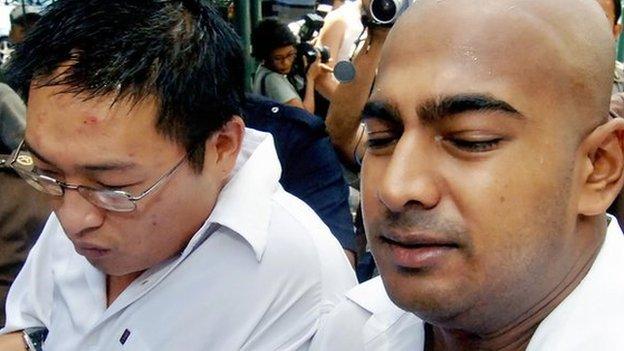
- Published12 March 2015
